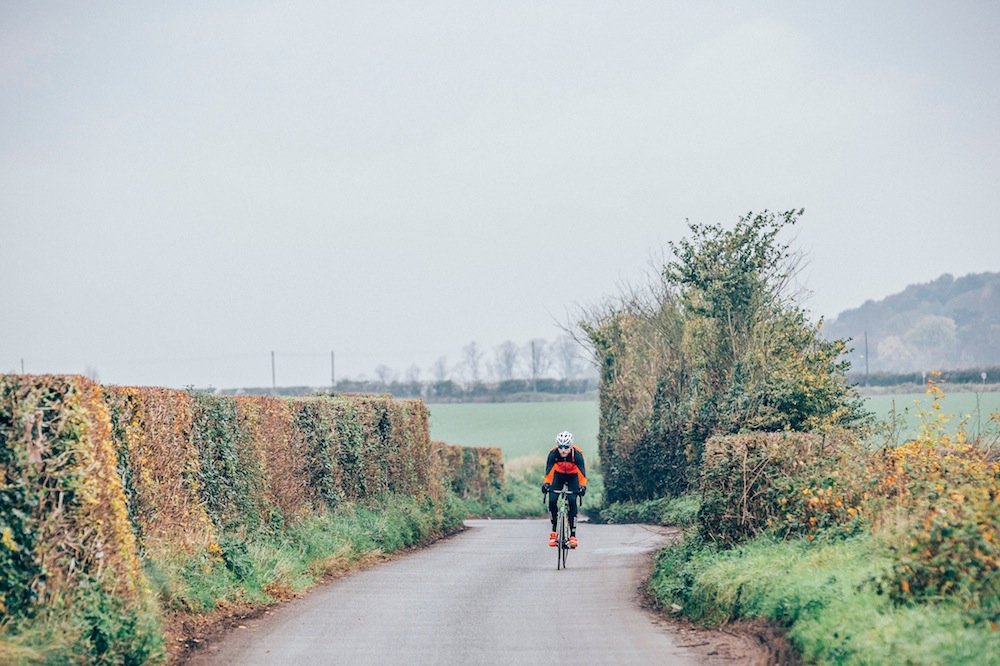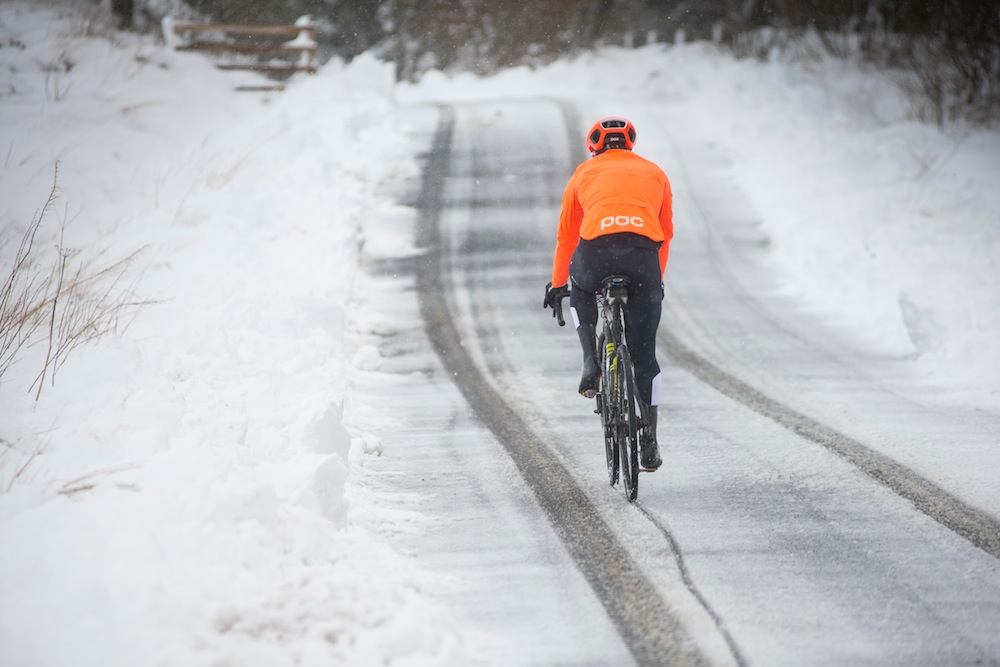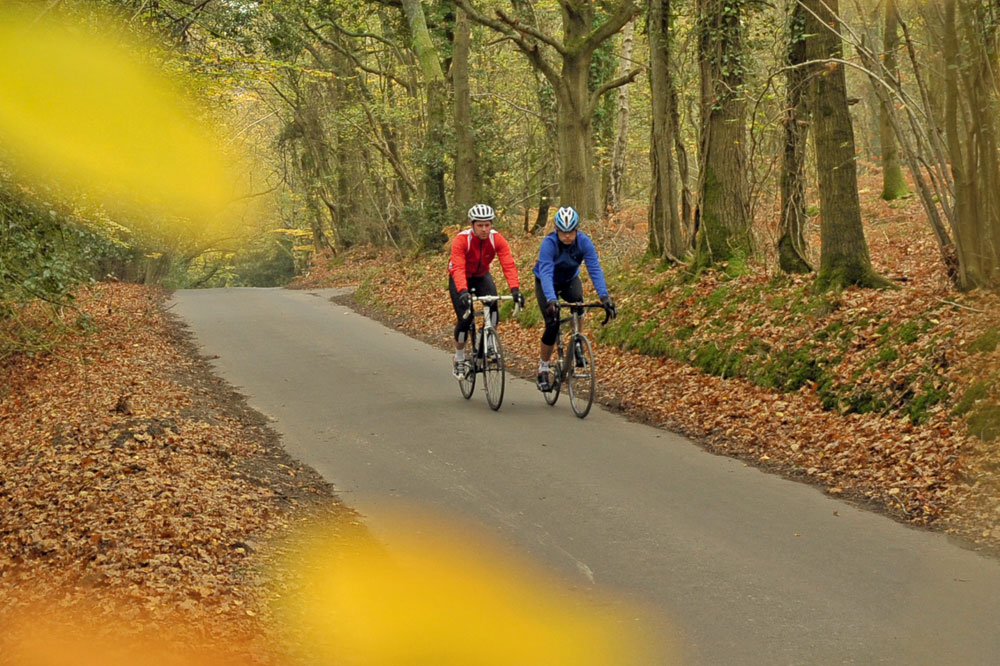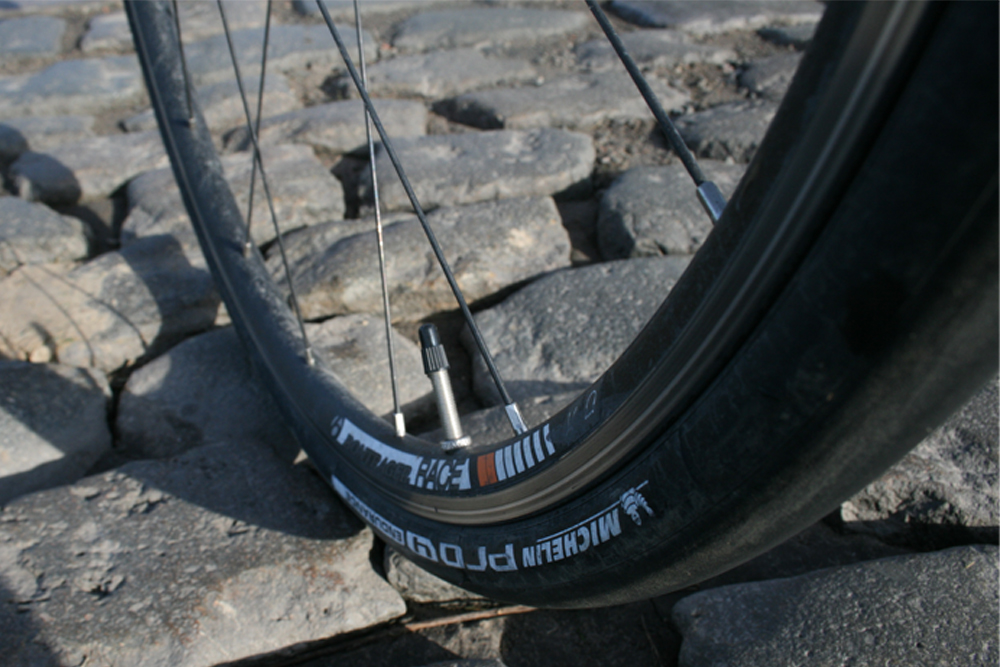Cycling slower in winter? Six excuses for slow winter riding and the truth behind them
Don't make excuses, make improvements

The summer bike’s tucked up in hibernation. The winter hack’s been dragged out and the rattling mudguards have been fixed.
It’s dark early – and it’s going to get cold soon. Welcome to winter riding.
It has its moments but mainly winter riding is sloooow. Why is that? We decide to look at a few of the common moans and summon the science.
>>> Keep riding with our top winter training tips
Moan: I’m slower because I’m on a heavy bike. It’s made of steel. It must be well over 10kg. Of course it’ll slow me down.
Truth: Not as much as you think, unless you only ever ride up steep hills. The British Medical Journal published a brilliant real world experiment by a consultant anaesthetist, who rode a total of 800 miles on two bikes during a regular 27 mile commute.
One was heavy (13.5 kg) and one light-ish (9.5 kg). Over almost 60 journeys, each around an hour and three quarters, divided half and half between bikes, his lighter bike was quicker – by a whole 32 seconds. His fastest single ride was . . . wait for it . . . on his heavy bike.
The latest race content, interviews, features, reviews and expert buying guides, direct to your inbox!
Moan: Cold muscles don’t work as well. That’s why we warm up before a race. Ergo, I’m slower in winter. Because it’s cold.
Truth: We’ll give you that one. A one per cent decline in muscle temperature may, according to physiologist Len Bownlie, result in a reduction of muscle force generation of up to ten per cent.
So if your legs are cold, 18mph is going to feel as hard as 20 mph. But, hey, they’ll soon warm up unless you’re riding in the Arctic, and think of the training benefit.

Moan: Cold air is like syrup. It’s harder to get through it, meaning it’s slower.
Truth: To an extent, that’s true. Cold air has more molecules – in other words, it’s denser. However, it’s got to be very cold to make a big difference.
Assuming the same air pressure, there’s a 10% difference between air density at 25C and minus 5C meaning drag is increased by 10%. Over a 40km TT, you’d be 1:23 slower at minus 5C than 25C for the same effort. But how often is it -5C in the UK?
Watch our guide to winter cycling clothing
Moan: The “boil-in-the-bag” effect of all that winter clothing slows me down.
Truth: Hard to be absolutely definitive on this one. Over-heating is a limiting factor on performance, but no-one said going up a climb in the Alps in August was a refreshingly cool experience.
However in summer, exposed skin helps the body’s natural cooling mechanism – sweating – to regulate temperature. That’s not as efficient a system in winter when little skin is exposed. But it’s probably more psychological than physiological.

Moan: I keep having to stop for a pee – I’m sure it’s because it’s cold.
Truth: We can see how that would play havoc with PBs. And it’s rock solid science. The cold does affect physiology and it changes the way the body processes liquid.
Read more about winter cycling
Winter cycling survival guide: 10 helpful tips to keep you riding
16 ways to stay motivated through winter
Pro rider tips for winter cycling
Basically, more water gets into the bloodstream and the kidneys respond by filling the bladder – which needs emptying more often. Even though it feels all wrong to be drinking a cold drink when it's cold, you actually should.

Moan: My tyres definitely don’t roll as fast when it’s cold.
Truth: There’s something in this. Tyres roll faster when they’re more elastic and bounce back into shape quicker. They do this less when it’s cold.
It’s estimated that for every 6C drop in temperature the rolling resistance of a tyre will increase by (a coincidental) 6%. Converting this to lost speed is tricky, given the huge variation in tyre types and pressures. But do tyres roll slower in the cold?
Yes, they do.
>>> Click here for our winter tyres buyer's guide
So, not all the moans are justified. But some are, and even though they may not make much difference individually, their cumulative effect is to slow us down.
And there’s another thing – we just don’t feel fast in winter. Bulky clothing, heavy bikes and rubbish roads all take their toll on our riding psyche.
And that’s probably the biggest single reason we’re slow in winter.